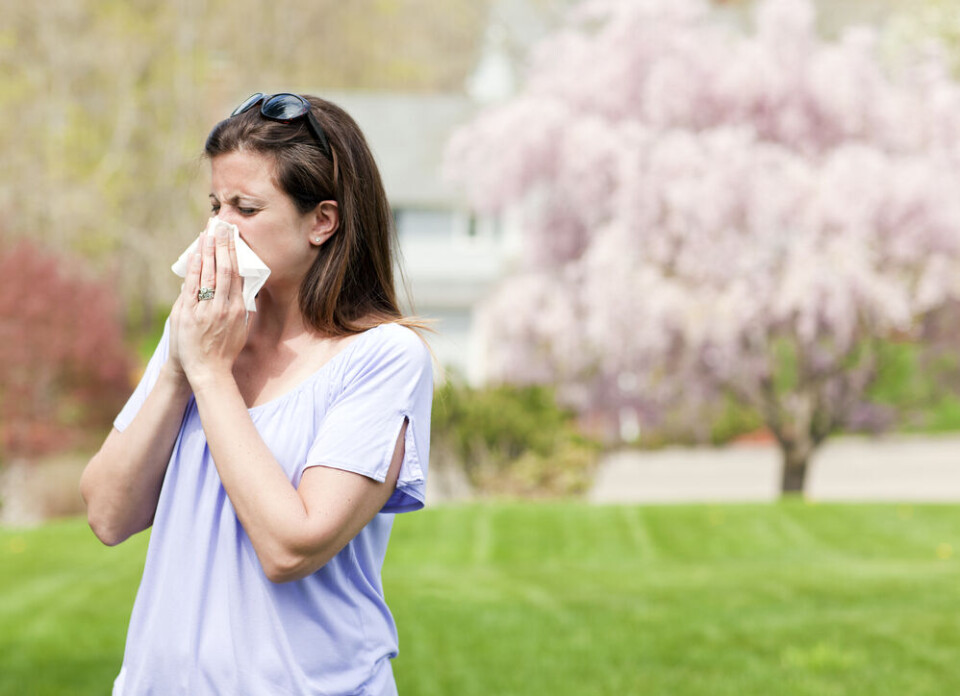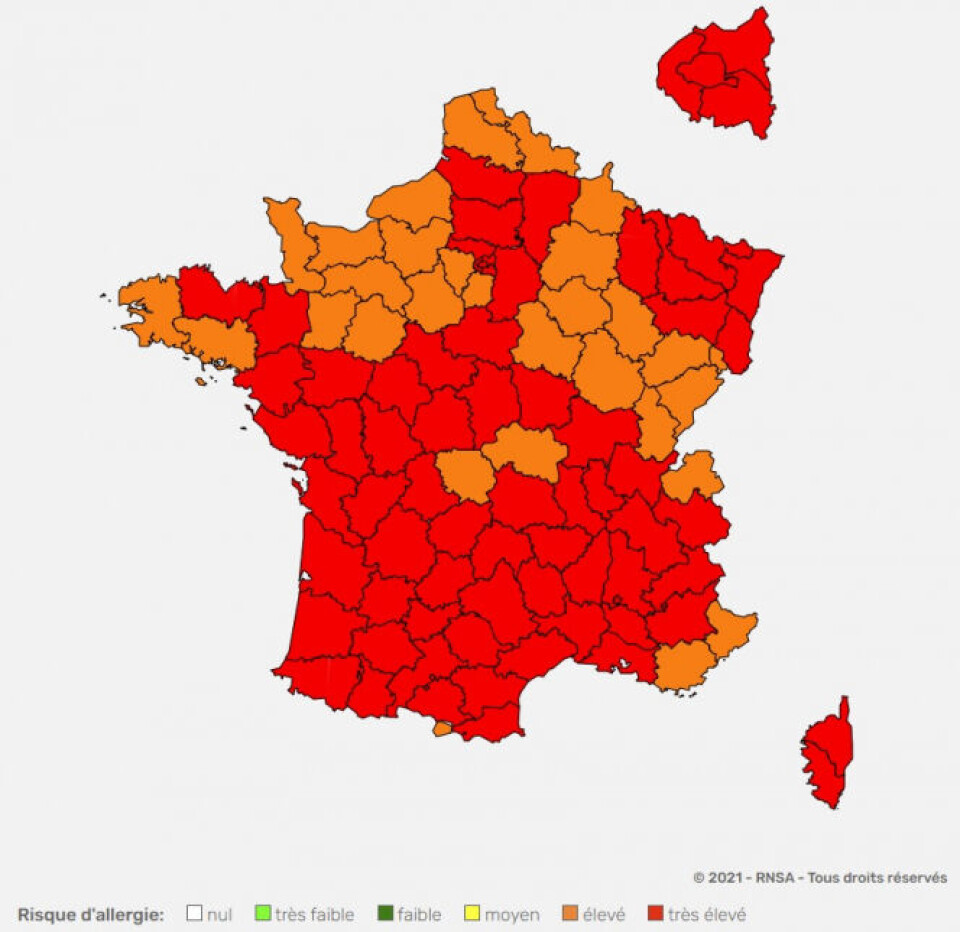-
Explosion at chemical plant near Lyon: where are other ‘at risk’ sites in France?
An estimated 2.5 million people live within a kilometre of a French Seveso site
-
Farmer blockades to continue on motorways over Christmas in south-west France
Protests are being maintained on the A64, A83 and A63 and on departmental roads
-
Interview: UK-France relations will only get stronger this year says new British Ambassador
The Connexion speaks to Sir Thomas Drew, who took up the role on September 1
France on high pollen alert after warmer weather
The grass pollen count is up across the country as temperatures hot up, but rain this weekend could offer some temporary respite

France is on high pollen alert for the next few days, with grass pollen allergies expected to be particularly severe throughout early June.
All departments are either on red (highest) or orange (second-highest) alert, with the southeast of the country especially affected, air quality network le Réseau National de Surveillance Aérobiologique (RNSA) said.
The northeast, Hauts-de-Seine, and Corsica are also particularly affected.

Credit: Pollens.fr / RNSA
These high levels of pollen are a result of rising temperatures over the past few days, as hotter weather increases the spread of pollen through the air.
Rain forecast for this weekend could lead to a short respite, but good weather is set to return next week, with a resultant rise in pollen levels again.
The RNSA said: “[As well as grass pollen], oak pollen is at the end of its flowering period, with a very low to medium level of allergy risk. We advise keeping an eye on olive tree pollen in the Mediterranean area, which will be responsible for a low to medium level of allergy risk. Sorrel and poppy pollen will also be present throughout the country with a low level of allergy risk.”
For people who suffer badly from allergies, an ‘allergologist’ may be able to help; but they are exceptionally busy at the moment due to people’s increased fears of reactions to Covid-19 vaccinations.
But Dr Terdjman, a Paris allergologist, told Europe 1: “Since the [vaccination] campaign started, I have not seen any patients [with allergies] for whom it was justified for me to advise them not to have the jab.”
Marie-Noëlle Primeau, allergologist at the Clinique Allergie Asthme in Montréal, Canada, issued some advice to limit symptoms.
These include:
- Not drying washing outside on a line to avoid pollen attaching itself to the fabric
- Closing windows to limit pollen inside the house
- Having a shower, changing clothes, and washing hair after being outdoors
- Taking easily-available antihistamines, and using nasal sprays
- Wearing filtering masks outside to stop the pollen entering the nose or mouth so much
Related stories
Grass pollen allergy warning as warm weather returns to France
Four apps to help France's allergy sufferers find local pollen counts
























